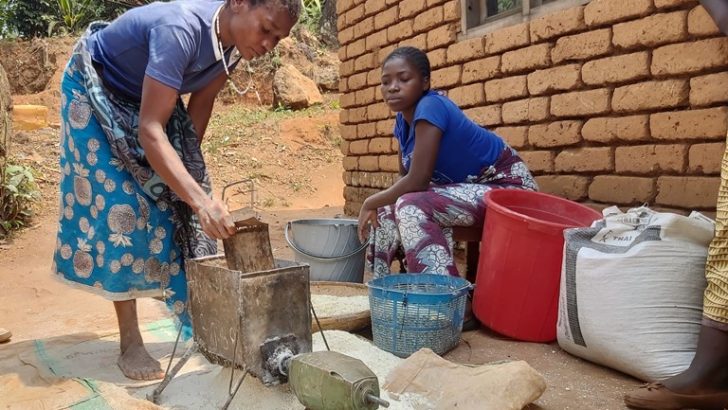
Life around Mulanje Mountain, particularly in Bondo Village, Senior Traditional Authority (T/A) Mabuka, is evidence enough that nature provides for humanity.
The famous mountain is a source of survival for dwellers around it, where farming prospers because of its fertile valleys and rivers that never run dry.

A visit to the area reveals people have capitalised on the natural resources to benefit their livelihood, and one way is through hydroelectricity generation.
For example, Lichenya River, which drains the south-western slopes of the mountain, has been harnessed by Mulanje Energy Generation Agency (Mega) for electricity generation. Initially, people in the area looked up to be connected to the Electricity Supply Corporation of Malawi (Escom) national grid for electricity, but not anymore.
Commissioned in 2014, the project now provides electricity to over 1 208 houses, four maize mills, a school and a clinic, among other facilities.
Since its commissioning, it has had a huge effect on people’s livelihood. Some youths who were idle or dependent on illegal timber business on the mountain have now ventured into other profitable businesses such as barbershops, hair salons, bottle stores and grocery shops.
A young barbershop owner Mikaeli Botolo attests to this.
He says: “At first I was just staying idle. On good days, I would do agricultural piece works but it was not giving me much. But since I started a barbershop, my life has improved.”
Botolo says on a good day, he makes K3 000.
“This is good money in a place like this,” he says.
Another young man, Christopher Sulupi, has designed a simple maize mill (chigayochokonola) which serves his entire community.
Currently, the mill is not efficient as it takes two hours to grind a 50 kilogramme (kg) bag of maize. And when he is away on other errands, his wife Martha operates it and she could not hide how her husband’s invention has empowered them economically.
Says Martha: “We make K4 000 in a day.”
Added to other agricultural ventures the family does, it is safe to say they are living comfortably by the village standards.
But with less generation due to reduced water levels during the dry season, only two maize mills are allowed to run in a day. However, as the rains have now started, rivers will be full and generation will improve. All four maize mills will be running daily, which means more income for the business owners.
Mega projects coordinator Arnold Kadziponye said the project is oriented towards providing a social service and self-sustainance than making profits.
He said: “This is a social enterprise. We make the electricity affordable to everyone in the area. Our plan is to use the revenue we get through prepaid purchases for maintenance and expansion. We would like to power this entire area and beyond.
“Look at the mountain. There are so many rivers from it that can be harnessed for electricity generation. We want to use all that potential to connect many to the mini grid.”
Government has identified promotion of mini grids as one of the strategies for increasing rural electrification, according to the Ministry of Natural Resources, Energy and Environment’s Department of Energy Affairs spokesperson Saidi Banda.
He said: “Mega being a mini grid and connecting the rural community it is in, conforms to energy policies and goals. Through such projects, we will be able to have affordable and clean energy for all by 2030.”
However, there is need to invest more. As the rest of Malawi faces electricity challenges, the story should have been different in Mulanje which has so much untapped potential to utilise its natural resources.
Still, the current investments and gains are a sign that things have now taken the right turn.
Source: The Nation-by Correspondents
